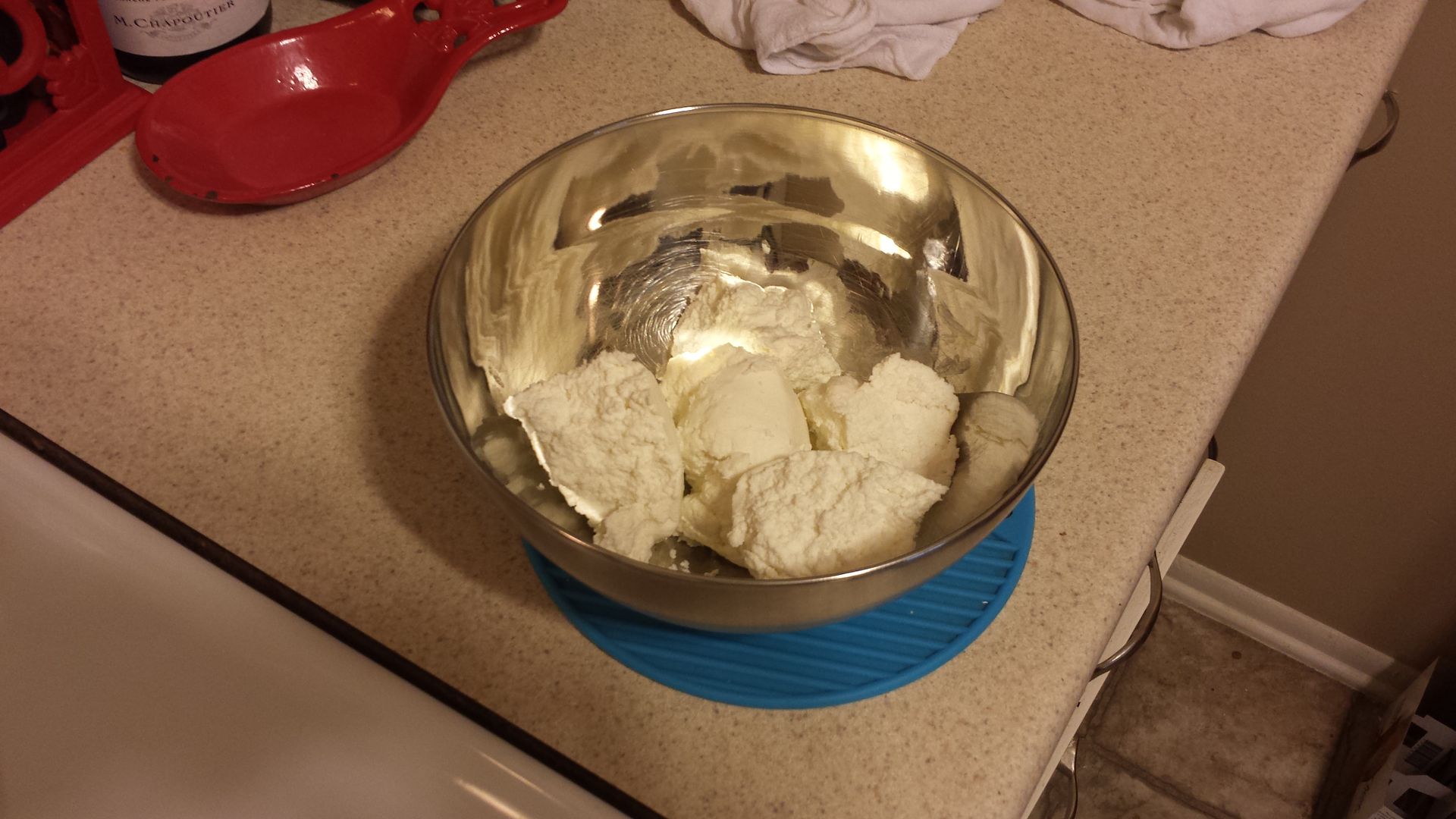Ricotta Cheese PET
Posted: Sat Oct 31, 2015 6:40 pm
It is a common ingredient in Italian cooking. It's in everything from cannoli to lasagna. It's also stupidly easy to make fresh. Why would you bother? The quality of the product will far surpass anything you can buy in a plastic tub loaded with artificial stabilizers. I'll bottom line the food science here.
We're going to lower the pH of one half gallon of whole, pasteurized milk with a solution of 1 tsp of citric acid in one half cup of water and then apply heat. Avoid ultra-pasteurized milk. It won't work nearly as well and will result in a shit yield. You can also use vinegar or lemon juice. I would recommend plain distilled white vinegar. If you use lemon juice, it will retain a lemony note which may or may not be appropriate for your intended use. I've made this with all three acids and the citric acid solution is the most neutral. This is also the start point of several other dairy products like paneer cheese and ricotta salata.
The ingredients are simple. 1/2 gallon milk, 1 tsp citric acid dissolved in 1/2 cup water and one rounded tsp of kosher salt (less if you are using it for a dessert).
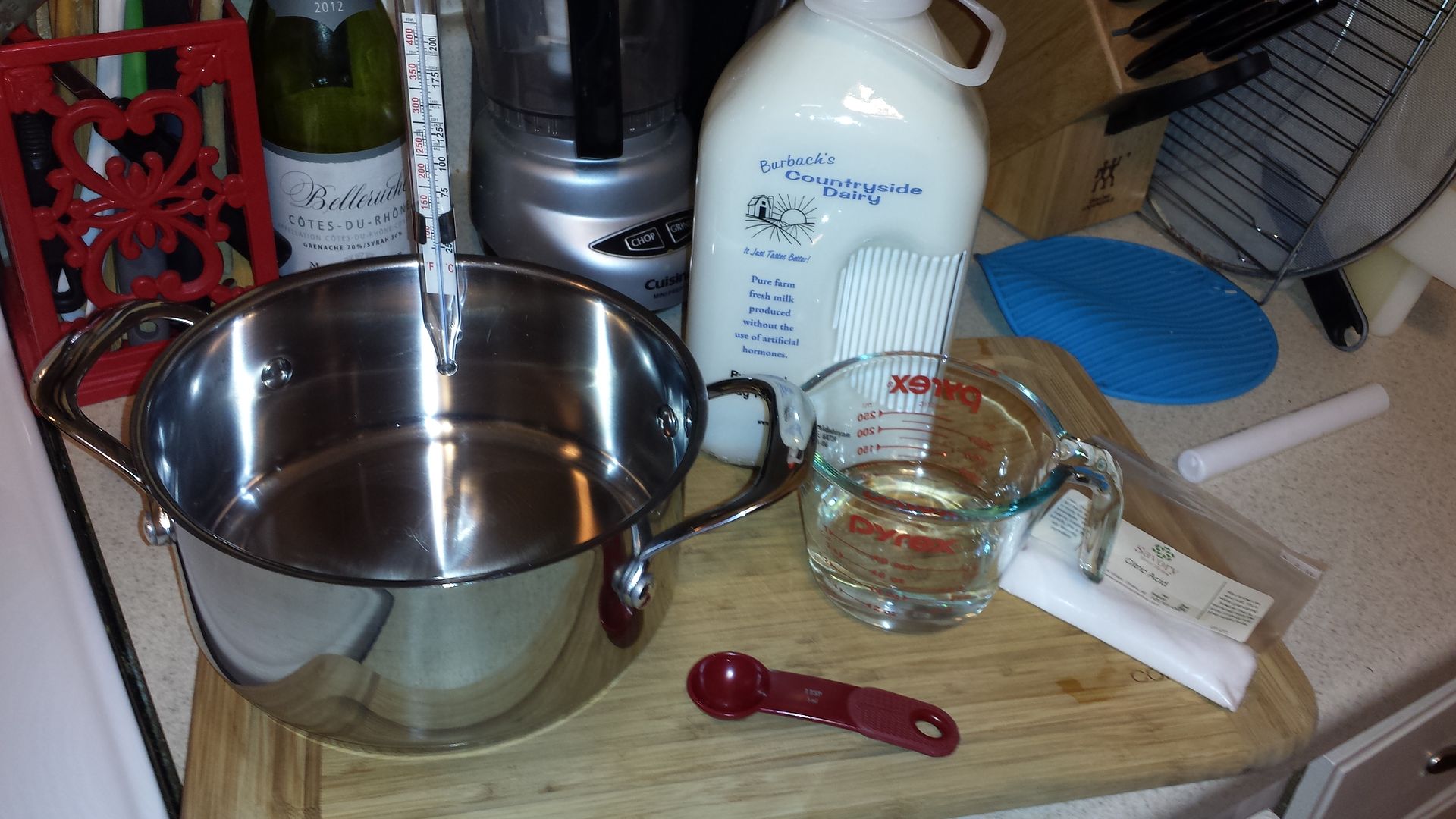
Add the acid solution and salt to the milk and gently bring the temp up to 195-200 degrees stirring frequently to prevent scorching.
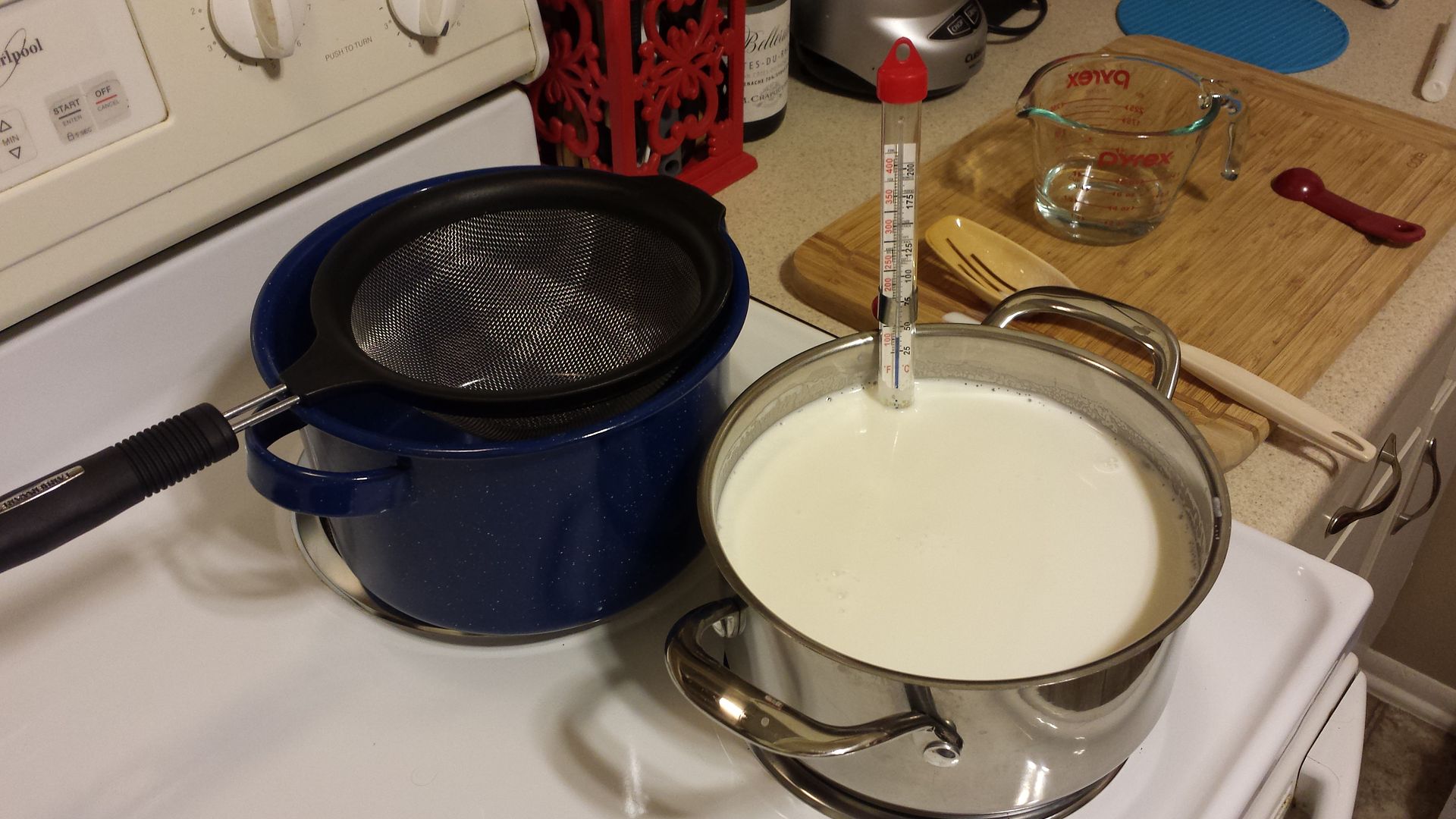
Once the temp reaches 165-170, the proteins begin to breakdown and the curds start to separate from the whey. At this point you still want to keep the pot agitated but do it as gently as possible. Just kind of paddle a large spoon with a bottom to top motion.
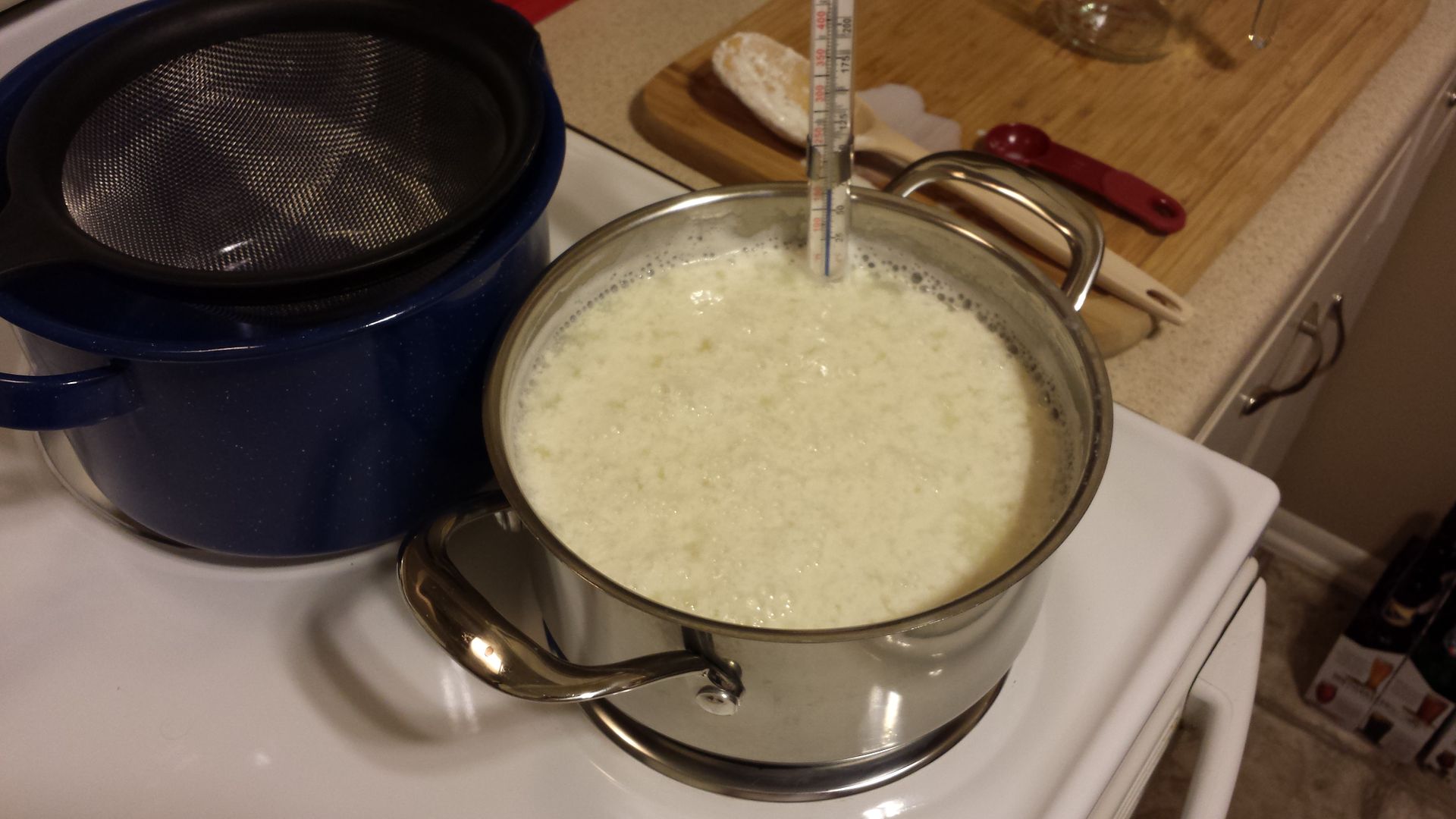
Hold it at 200 for five minutes and then remove it from heat and let it rest undisturbed for 20 minutes (crucial step). Line a strainer with some cheese cloth or a boiled, cotton dish towel or something. I used a Chemex coffee filter which are much sturdier than regular coffee filter. Ladle the curds into the strainer with a slotted spoon and then let drain for about 30 minutes. It's ready at this point. Try not to eat all of it standing at the counter. Put in a container and refrigerate. My final yield was about 14 ounces. The recipe I am going to be using this in calls for a dry ricotta, so I'm going to let this continue to drain overnight...which was last night.
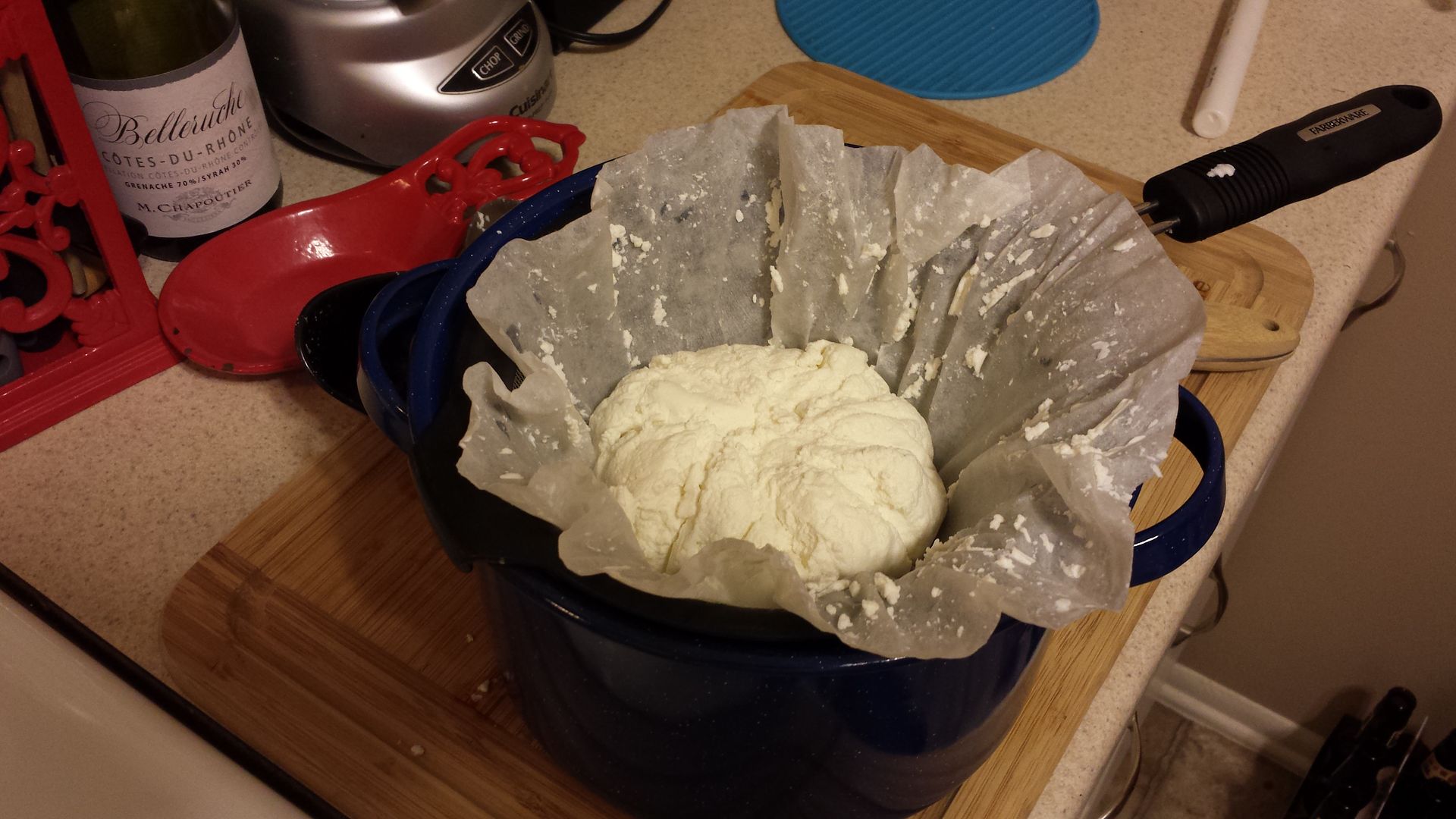
We're going to lower the pH of one half gallon of whole, pasteurized milk with a solution of 1 tsp of citric acid in one half cup of water and then apply heat. Avoid ultra-pasteurized milk. It won't work nearly as well and will result in a shit yield. You can also use vinegar or lemon juice. I would recommend plain distilled white vinegar. If you use lemon juice, it will retain a lemony note which may or may not be appropriate for your intended use. I've made this with all three acids and the citric acid solution is the most neutral. This is also the start point of several other dairy products like paneer cheese and ricotta salata.
The ingredients are simple. 1/2 gallon milk, 1 tsp citric acid dissolved in 1/2 cup water and one rounded tsp of kosher salt (less if you are using it for a dessert).

Add the acid solution and salt to the milk and gently bring the temp up to 195-200 degrees stirring frequently to prevent scorching.

Once the temp reaches 165-170, the proteins begin to breakdown and the curds start to separate from the whey. At this point you still want to keep the pot agitated but do it as gently as possible. Just kind of paddle a large spoon with a bottom to top motion.

Hold it at 200 for five minutes and then remove it from heat and let it rest undisturbed for 20 minutes (crucial step). Line a strainer with some cheese cloth or a boiled, cotton dish towel or something. I used a Chemex coffee filter which are much sturdier than regular coffee filter. Ladle the curds into the strainer with a slotted spoon and then let drain for about 30 minutes. It's ready at this point. Try not to eat all of it standing at the counter. Put in a container and refrigerate. My final yield was about 14 ounces. The recipe I am going to be using this in calls for a dry ricotta, so I'm going to let this continue to drain overnight...which was last night.

